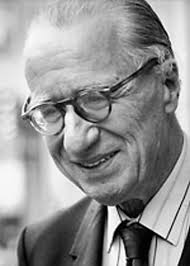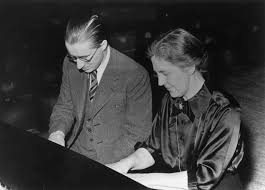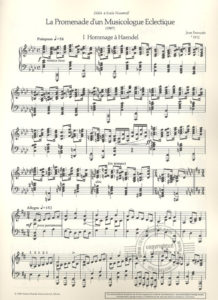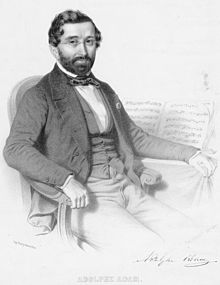
Jean Françaix
Jean Françaix (1912-1997) was a prodigious musical talent. He received his first lessons in harmony and counterpoint from Nadia Boulanger at the age of 10! Maurice Ravel was mightily impressed, and wrote to Jean’s father, “Among the child’s gifts I observe above all the most fruitful an artist can possess, that of curiosity: you must not stifle these precious gifts now or ever, or risk letting this young sensibility wither.” Encouraged by Ravel’s endorsement, Françaix entered the Paris Conservatoire and embarked on a career as concert pianist. Such were his talents that he received the first prize in the piano class of Isidore Philipp. He composed in an accessible and attractive style, with a good many commentators dismissing his compositions “as frivolous.” Always ready to avoid the premeditated wrong note and boredom like a plague, Françaix famously quipped, “My music exists to give pleasure.” And what could be more fun and pleasurable than to invoke the mannerism of some iconic composers?
Jean Françaix: Promenade d’un musicologue eclectique – No. 1. Hommage a Handel(Martin Jones, piano; Adrian Farmer, piano)
No. 2. Hommage a Frederic Chopin

Jean Françaix and Nadia Boulanger
The delightful pastiche Promenade d’un musicologue eclectique was composed in 1987 and premiered three years later by Émile Naoumoff, to whom the set is dedicated. The opening movement is marked “pomposo,” and we clearly hear the influence of G.F. Handel in this French-style overture. The homage to Handel is affectionate, as is the nod towards Chopin in the “Mazurka”. Françaix had actually composed this piece of great harmonic sophistication thirty-three years earlier when it appeared as the “Mazurka” movement in his suite Napoléon for piano four hands. The third composer to be tenderly imitated is Domenico Scarlatti. Both halves of this balanced sonata movement are repeated, and the Scherzo from Beethoven’s Eroica and Mendelssohn’s A Midsummer Night’s Dream make rather boisterous appearances. Remembering Ravel’s high praise, Françaix pays him a sincere tribute in the form of a poignant waltz.
No. 3. Hommage a Domenico Scarlatti
No. 4. Hommage a Maurice Ravel

Music sheet of Promenade d’un musicologue eclectique
Nobody knows the identity of the unnamed contemporary composer lampooned in the 5th movement. Maliciously inscribed as “Petit Hommage à la Musique Contemporaine,” the piece starts in silence with the composer writing, “a brief meditation, right hand on the keys, left hand in Glenn Gould position.” This is followed by some incoherent clashes at extreme registers and dynamics, with the opening measures of Schumann’s Fantasiestück Op. 12, No. 3 “Why” mercilessly attacked. It also includes an episode of tapping the instruments, importantly marked “Maestoso.” In the contemptuous final gesture, the piano lid is dropped and the player is instructed to “raise the hands slowly, while contemplating the sky in meditative inspiration, then let them drop again feebly.”
No. 5. Petit hommage a la musique contemporaine

Adolphe Charles Adam
The French composer and music critic Adolphe Charles Adam (1803-1856) is the subject of Françaix’ concluding musical impersonation. Adam was a prolific composer of operas and ballets, and he is probably best known today for his ballets Giselle and Le corsair. Pianist-composers produced countless virtuoso fantasies on themes from both works, and Françaix mimics the spirits and mannerisms of the great virtuosos of the 19th century without disguising his own distinctive voice. “I wish to be honest,” he wrote “When I am composing, the finest theories are the last things that come to mind. My interest is not primarily attracted by the motorways of thought, but more the paths through the woods.”
No. 6. Hommage a Adolphe Adam
